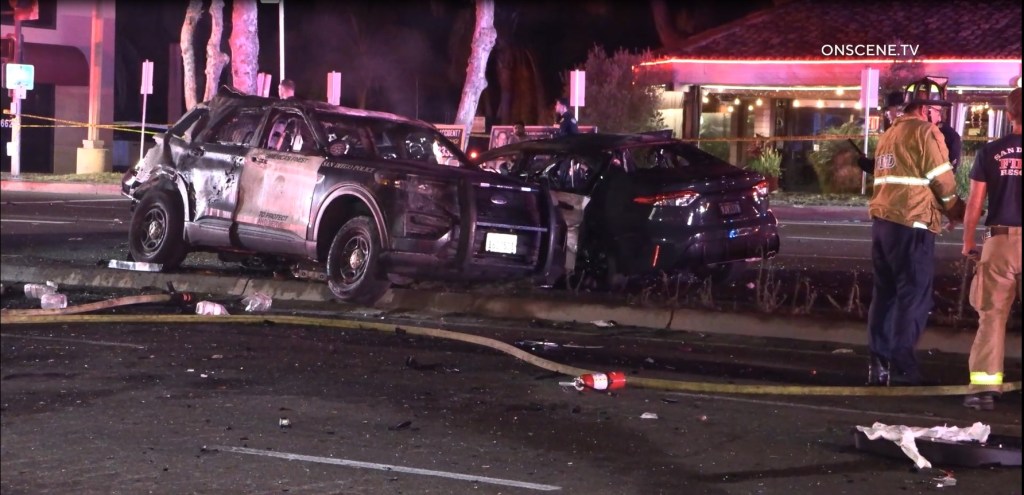

In the wake of multiple deadly crashes stemming from San Diego police chases, a civilian oversight board on Wednesday recommended that the department revise how it initiates and conducts pursuits.
The Commission on Police Practices recommended the department restrict pursuits so chases are not started for infractions or property offenses “unless other aggravation factors such as armed resistance are present.”
It’s unclear whether the department will implement any of the proposed changes, which drew sharp criticism from the police union when they were first discussed this summer. Chief Scott Wahl has two months to respond to the policy suggestions.
“We have been awaiting those recommendations and will now utilize the 60-day review period to understand their suggestions and identify what the next steps may be as a result of this review,” the department said in a statement to the Union-Tribune. “We would like to thank the CPP for their diligence on this matter and look forward to continuing to work collaboratively with them on this and other matters in the future.”
The department’s pursuit policies came under scrutiny following a crash in 2023 that killed two young boys, brothers Malikai, 8, and Mason Orozco-Romero, 4, and severely injured their mother and another woman.
A 20-year-old man who was allegedly evading police slammed his car into the vehicle carrying the boys and the two women. That pursuit was initiated after officers spotted a broken headlight.
In August, as the commission was asking the department to consider preliminary policy recommendations, a San Diego police officer was killed and a second was injured when they were hit by a car while responding to a vehicle pursuit.
Officer Austin Machitar and his partner were responding to a call when a vehicle driven by a 16-year-old boy slammed into the side of his police unit. Police had been chasing the teen but the pursuit was quickly called off because of high speeds. Machitar died and the driver of the vehicle, Edgar Giovanny Oviedo, also was killed.
The Police Officer’s Association has strongly opposed the proposed set of recommendations. “The recommendations presented by the CPP are misguided and pose significant risks to our community,” the association said last summer in a statement.
On Wednesday, the commission moved to formally recommend the changes.
Before making its recommendations in July, the commission reviewed data from more than 1,000 pursuits, finding that around 60% of the chases began after a suspected infraction had occurred.
Nearly one out of every five pursuits resulted in a crash, with injuries arising in nearly 75% of those incidents, the commission found in its study.
“Pursuits for misdemeanor offenses … should be rare unless there is clear evidence that the suspect poses an immediate danger to the public,” the commission wrote in its recommendations.
Pursuits of suspects wanted on non-violent warrants also was discouraged.
“The potential danger of the pursuit itself should be lower than the danger posed by allowing the suspect to remain at large,” the commission said.
The final recommendation regarding when pursuits should be started has changed since it was initially proposed, commissioner Doug Case said at Wednesday’s meeting.
“Our preliminary recommendation said that they should only be initiated for violent crimes,” he said. “We did quite a bit of analysis of that, got feedback from a lot of different sources, and that’s what we came up with.”
The commission also recommended that the department establish a pursuit review board and include in its accident report analysis any incidents, such as a death or property damage, that may have occurred after the pursuit was ended and change the department’s definition of a pursuit so it is identical to the one used by the California Highway Patrol.
The department should also explore using “advanced technologies” like GPS tracking and drone surveillance, the commission said.
Originally Published:







